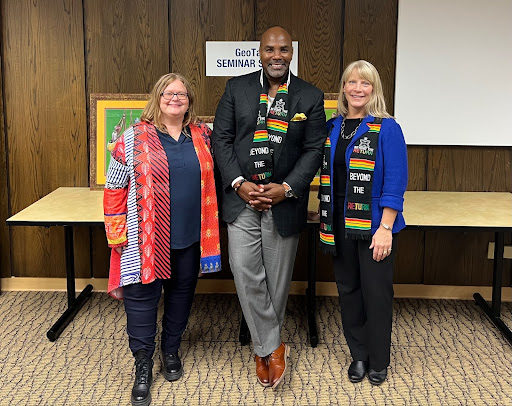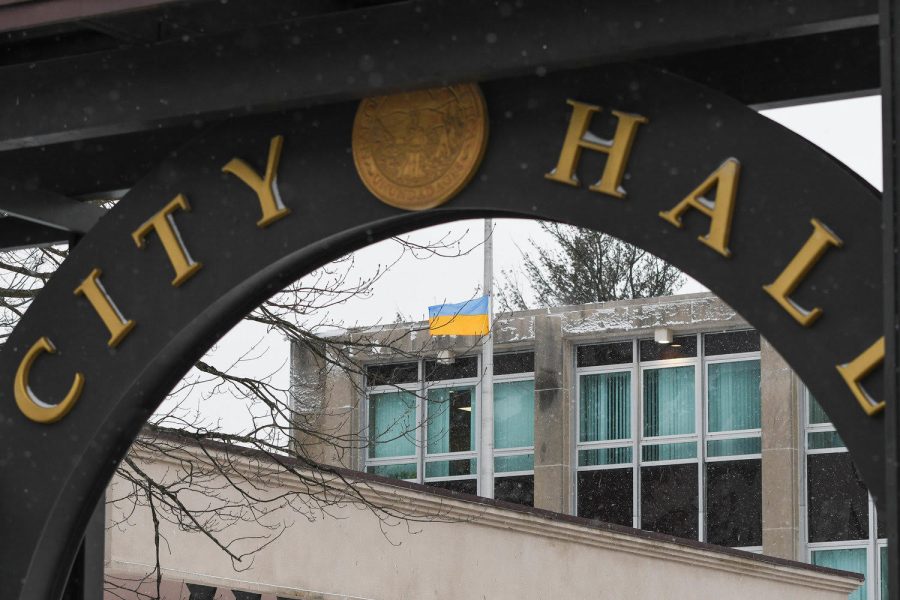The 2018 congressional elections brought new faces to the U.S. political sphere and something unseen before in the legislative branch. With a record number of women and minorities serving for the first time, the 116th Congress is the most diverse in history of American politics.
Democratic Rep. Ilhan Omar of Minnesota is one of those new faces in Congress. While her and Rashida Tlaib are the first Muslim women elected to Congress, Omar is also the first to wear a hijab in the chamber.
Two weeks ago, Omar became the subject of a controversy after President Donald Trump tweeted a video of the representative’s speech in which she appeared to downplay the 9/11 attacks by saying “some people did something.”
Omar later said in a statement that death threats directed to her spiked as a result of the president’s tweet, an issue that raises questions about when to draw the line between First Amendment protections and what Omar described as hate speech.
Government and Politics Professor Daniel Tagliarina said more diversity in Congress “has helped” but it is still “not great” since there are still very few Muslim representatives who are also facing daily discrimination and death threats even before Omar’s recent controversy with the president.
Tagliarina said that on top of all the “political distaste” and “routine death threats” that Muslim representatives experience, the president’s remarks highly influenced the backlash against Omar.
“[Omar’s] words were used out of context, paired with very specific vivid images that have a lot of meaning for people and violent images,” Tagliarina said. “To act like she’s downplaying these events is inherently meant to rile people up, and that’s exactly what it’s done.”
In her statement, Omar said “violent rhetoric” and other forms of “hate speech have no place in the American society much less from our country’s commander-in-chief.”
Tagliarina did not think the president’s remarks on Omar were explicitly hate speech but stated that “they are certainly causing problems.”
“One thing is having political disagreement, but it’s another to know the effects of the power of your words,” he said. “The president has a wide audience and it’s important to understand that when they say things, those will be interpreted in different ways and that they need to be responsible for the things they say.”
With 3.45 million Muslims living in the U.S. as of 2017, according to the Pew Research Center, diversity in Congress has increased, but so has Islamophobia, the Center for American Progress found.
At Utica College, there are many Muslim students, such as senior Hamza Ditta.
According to Ditta, the two ways in which the Muslim community deals with issues of discrimination and Islamophobia on a daily basis are by hiding and/or educating.
“[Muslim students] hide because the barring of all of this can be too much sometimes, so in most cases, it seems better to just hide and ignore it,” he said. “Others stand up and educate because it’s the pillar of a better and more understanding world that one day will allow us to live as a peaceful community.”
From his personal perspective, Ditta said he tries to educate people on the difference between culture and religion since “in most cases, we forget that these are two different things and allow ourselves to be judgemental towards others.”
Senior Hermina Garic was born in Bosnia and grew up Muslim in the United States. When she learned about Trump’s tweet on Ilhan Omar, she felt “disappointed” because her Islamic upbringing is still “an important part of [her] identity and [her] culture.”
Growing up, Garic did not know much about her Muslim identity rather than what her parents told her.
“We didn’t really have mosques here for me to be able to go when I was younger,” she said. “As time went on, my family and I went to Bosnia and I became more Islamic and went through a reinterpretation of my own identity.”
When she came back to the U.S., Garic said “people would make fun, make comments and look at me in a different way because I was a Muslim.”
For Garic, the non-acceptance of Muslim people is rooted in the events after the 9/11 attacks.
“Even though 9/11 was eight years ago, there are still many people that still have this fear towards Islamic people,” she said.
In addition, Garic stated that representation helps the perception of minorities, especially people of color and Islamic people, and added that “diversity shows you how to see the world from a lens that’s different from this white, Christian structure that we are used to seeing.”
According to Garic, while “representation inspires other Islamic people that have never seen people like them in positions of power,” it has also made America “open their eyes up to the actual threats and dangers that people face when they are not within the traditional identity.”
Referring to the president’s tweet on Ilhan Omar’s speech, Garic said it was a “political attempt to pin her on what happened during 9/11.”
“To me, it was a political tactic to fuel the hate that other people already have for her because she is Islamic,” Garic said.


















![President Todd Pfannestiel poses with Jeremy Thurston chairperson Board of Trustees [left] and former chairperson Robert Brvenik [right] after accepting the university's institutional charter.](https://uticatangerine.com/wp-content/uploads/2023/10/unnamed.jpeg)




















































































































